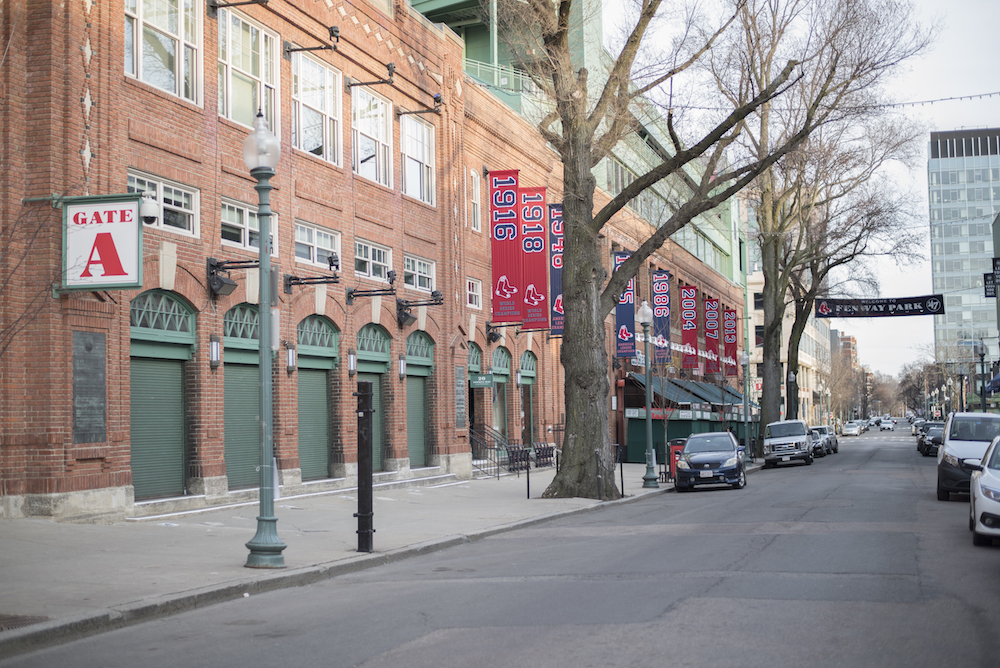
The Boston Public Improvement Commission unanimously voted Thursday morning to return Yawkey Way to its original name, Jersey Street, due a city-wide discussion over former Boston Red Sox owner Tom Yawkey’s supposed racist history.
The street on which Fenway Park is located was renamed in honor of Yawkey, following his death in 1976. Recent discussions about Yawkey allegedly calling black people who were trying out for the team racist slurs prompted the City to consider a petition, submitted by the Red Sox in February, which requested the street be given a more inclusive name.
In a statement from the Red Sox, the team said it was pleased with the outcome of Thursday’s hearing and thanked members of the community who voiced their support for the proposal.
“Today’s vote is an important step in our ongoing effort to make Fenway Park a place where everyone feels welcome,” the Red Sox said in the statement. “We recognize we have a long way to go, but remain committed to building a spirit of diversity, inclusivity and openness within our front office and our ballpark.”
The Yawkey Foundations, which has opposed the name change since its proposal, said in a statement that it was “deeply disappointed” by the Commission’s decision to remove Yawkey’s street-name tribute.
In its statement, The Yawkey Foundations noted Yawkey’s numerous charitable contributions to Boston and said, although the Red Sox were the last Major League Baseball team to racially integrate, the full picture of of Yawkey’s life “more than justified” honoring the former team owner.
“The drastic step of renaming the street, now officially sanctioned by the city of Boston … will unfortunately give lasting credence to that narrative and unfairly tarnish his name, despite his unparalleled record of transforming the Red Sox and Fenway Park and supporting the city he loved through his philanthropy,” the Foundation said in its statement.
Massachusetts Rep. Russell Holmes, who spoke in favor of the petition at the hearing and was the only person to testify Thursday, said he believes the City’s decision to rename Yawkey Way was a courageous demonstration of progress in a time of critical change on behalf of the Red Sox and Mayor Martin Walsh.
Holmes said he had found the advertising methods used by the Yawkey Foundations to save the former street name offensive and threatening.
“I thought it just sent a message that, essentially, we as black people need to be quiet and silent because of the fact that you’ve given over $300 million over the years,” Holmes told The Daily Free Press. “I think that the challenge for the Yawkey Foundations has been that they have not owned up to the responsibility of that fact that Mr. Yawkey had made some bad decisions when it came to people of color.”
Holmes said he thought of the Yawkey Way street name as an undercover tribute to racism in Boston that needed to be removed.
“We don’t have very many Confederate statues here in the Commonwealth, but we do have tributes to people who may not be appropriate,” Holmes said. “It may have taken 60 years … but it’s the right time to do it.”
Jordan Kimmel, Haley Lerner, Samantha Day, Riley Villiers and Sarika Ram contributed to the reporting of this article.























































































































John • May 14, 2018 at 11:30 am
Overall I agree with this decision, however, it should be noted that the following generation of the Yawkey family has done some fantastic philanthropy in the Boston area